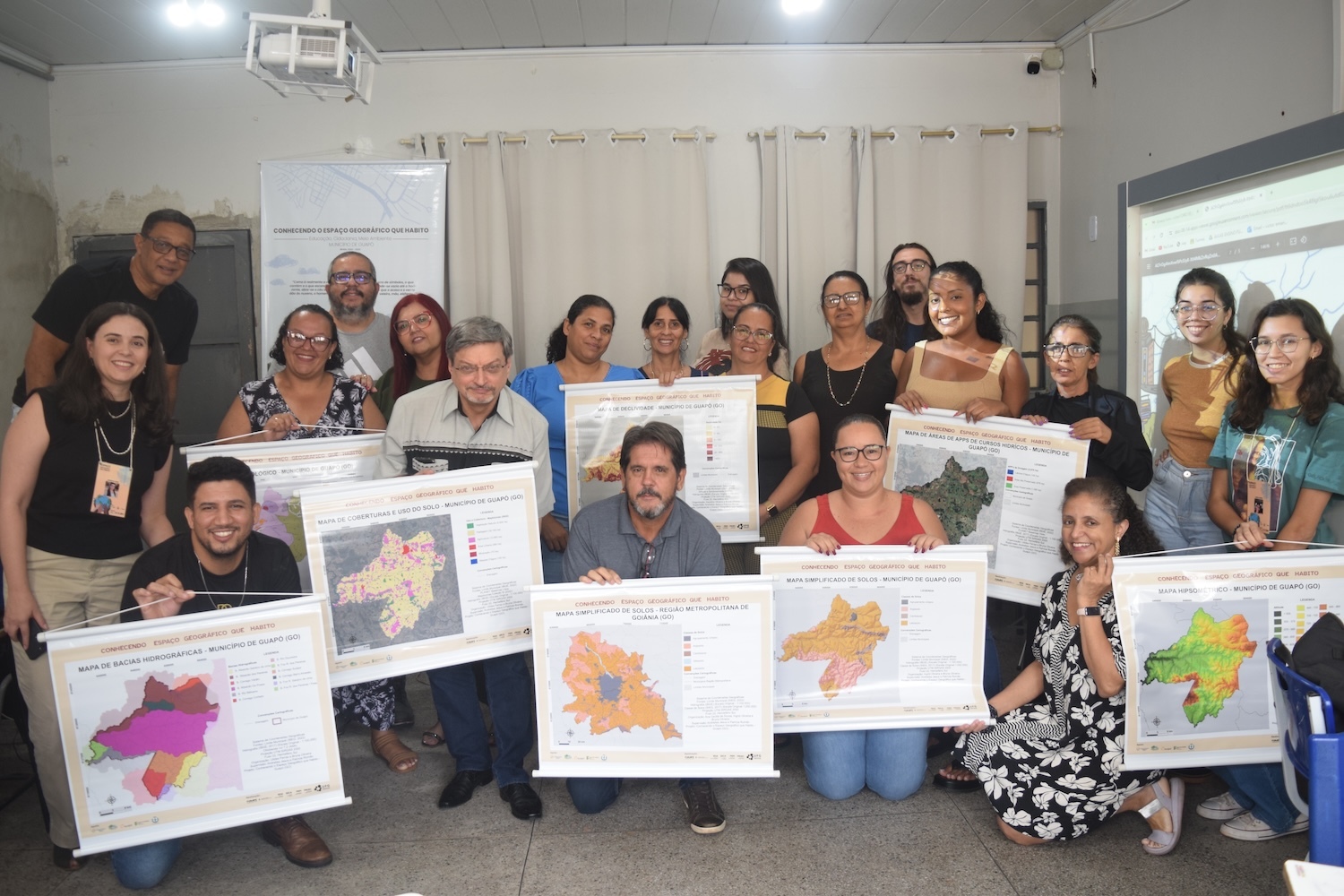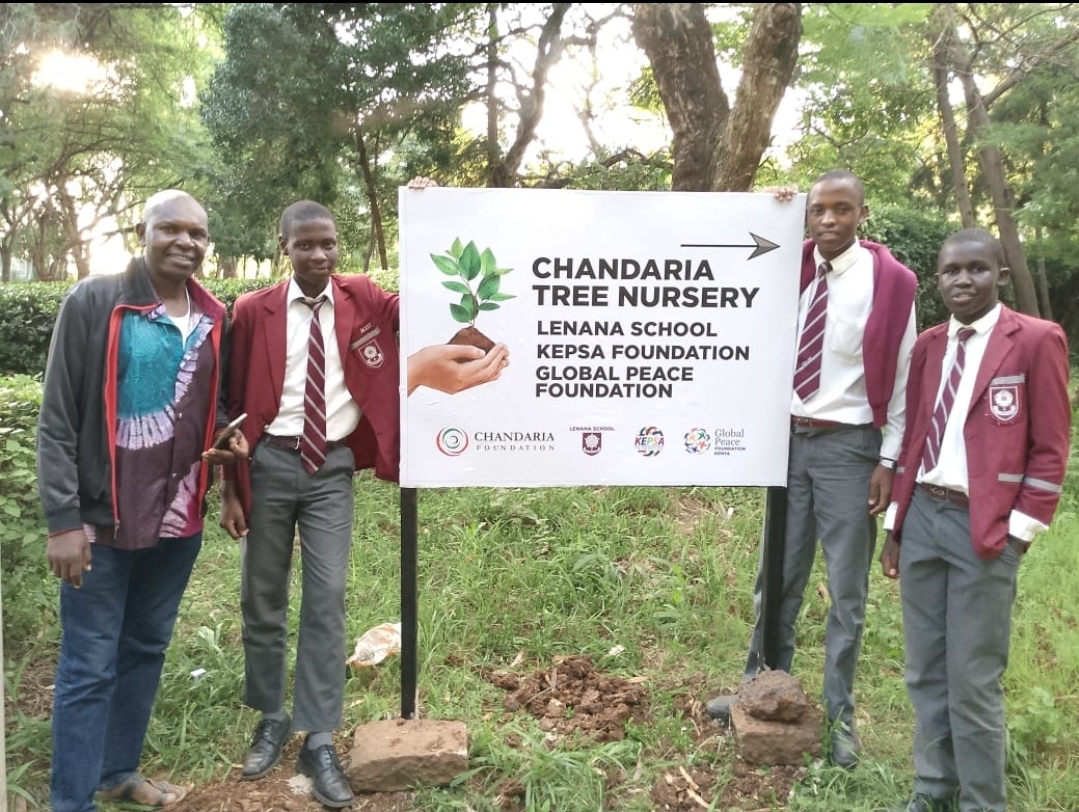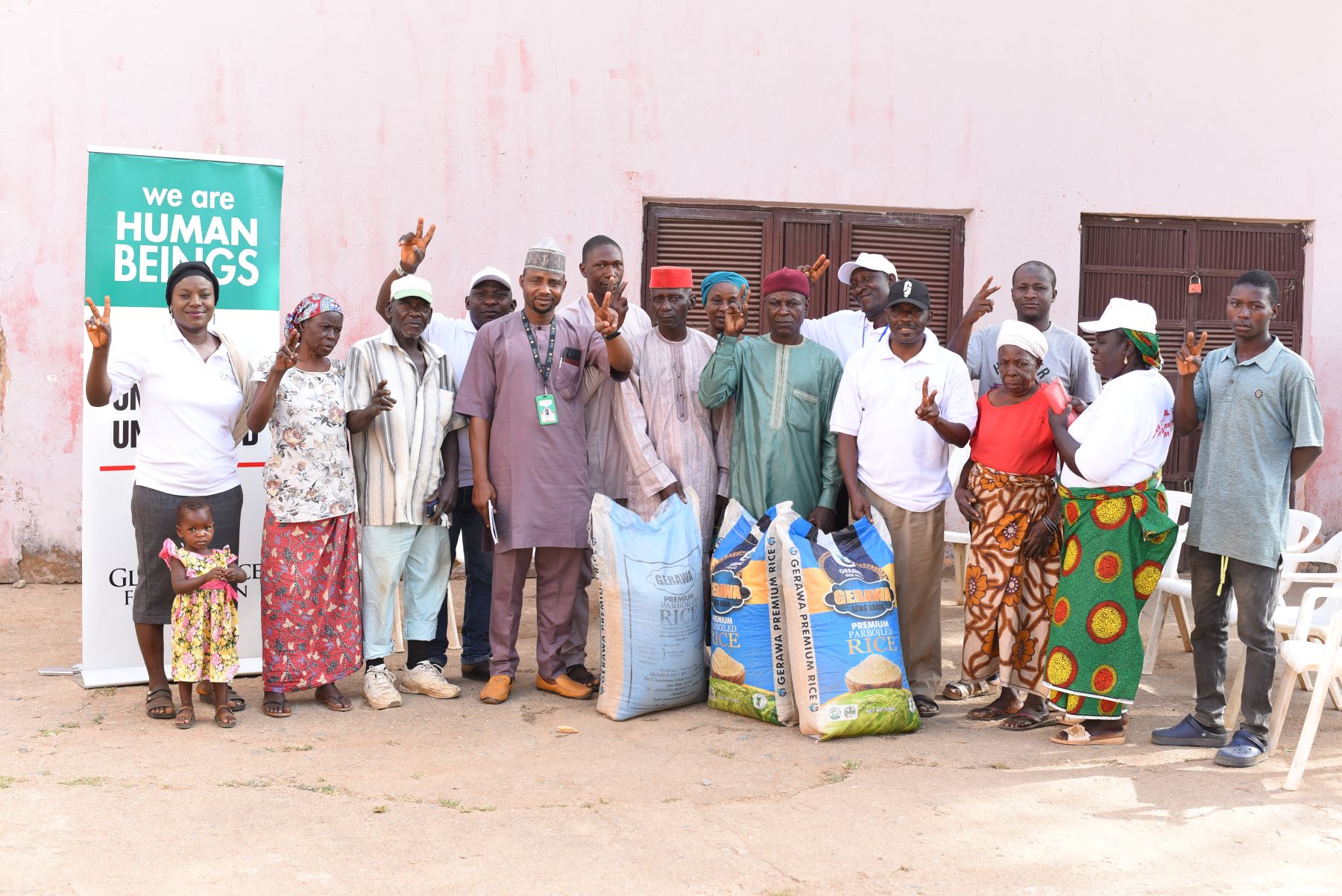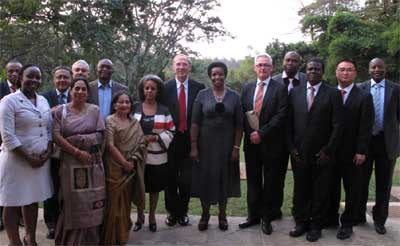
United Nations, Kenya government, and private sector leaders at the first Africa Regional Leadership Council meeting.
Twenty-five Kenyan leaders, including senior United Nations directors, Kenyan government ministers, and major business representatives, attended the first GPFF Africa Regional Leadership Council meeting at the residence Dr. Manu and Aruna Chandaria on July 8, 2011. The meeting sought to advance development strategies outlined in the Nairobi Declaration signed by delegates from 40 nations at the 2010 Global Peace Convention.
Dr. Chandaria, the founding chairman of the Africa Regional Council, stressed the significance of GPFF activities in Kenya as proven approaches to addressing ethnic conflict, building character competencies, and encouraging active youth participation in civic life. He noted that over 6 million well-educated youth in Kenya are sitting idle without anything meaningful thing to do.
“We have a problem of the youth; we cannot close our eyes,” Dr. Chandaria candidly told the group.Citing the Nairobi Declaration affirmation that “Youth are an untapped source of energy which can be directed towards developing competences to provide peaceful services to nations,”he encouraged the diverse leaders to all “be part of the team to build their future.”
Support for GPFF Kenya initiatives
Several United Nations leaders expressed interest in the goals of the Africa Regional Council and support for GPFF Kenya initiatives, particularly relating to youth. United Nations Environment Programme Director Ibrahim Thiaw and the UNICEF representative Nazim Mitha agreed that youth play a critical role in society. “We should stop looking at youth as a threat, but instead as an opportunity.” said Mr. Thiaw.
Ambasador Sahle-Work Zewde, the Director General of United Nations Office in Nairobi, promised to consult with the UNDP country representative who was present and to explore opportunities to support GPFF programs. The Director General also thanked Dr. and Mrs. Chandaria for their hospitality, noting that this was her first invitation since her recent appointment to the UN post.
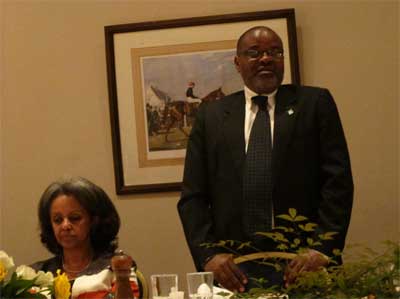
Ambassador Sahle-Work Zewde, the UN Director General (seated), and Mr. Aeneas Chuma, Resident Representative of the UN Development Programme.
Other private sector leaders emphasized the importance of inculcating national values among youth, as well as including leadership training, financial literacy, and life skills in education curricula.
Participants especially recognized the importance of GPFF’s ongoing entrepreneurial and community-based development programs, environmental initiatives, and character and peace education projects as effective remedies for the ethnic violence that flared following 2007 elections in Kenya. Kenya holds national elections in 2012.
UN-HABITAT Global Parliamentarian Chair Dr.Markenday Rai, a member of GPFF’s Global Leadership Council, said that GPFF’s vision of One Family under God, which transcends tribe, culture and race, served as a key paradigm for engaging youth from diverse tribes and building a unified Kenya.
Ambassador Michael Oyugi, the Deputy Permanent Secretary of Kenya’s Ministry of Foreign Affairs, also thanked GPFF for acting regionally, working closely with the Africa Union Commission, and hosting the 2010 Global Peace Convention in Kenya which drew attention to issues of security and cooperation among the East Africa community.
At the conclusion of the meeting, GPFF National Director Fredrick Rangala and Global Peace Youth Corps Secretary General Daniel Juma gave briefings on current programs in Kenya, and urged the leaders to support the Mr. and Miss University pageant, which is scheduled to be held in Rwanda in 2011, sponsored by the East Africa Service Peace Corps.

